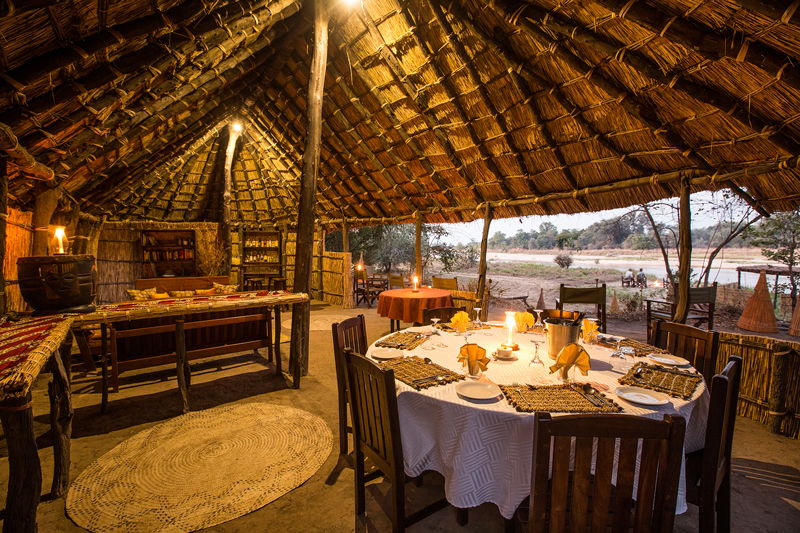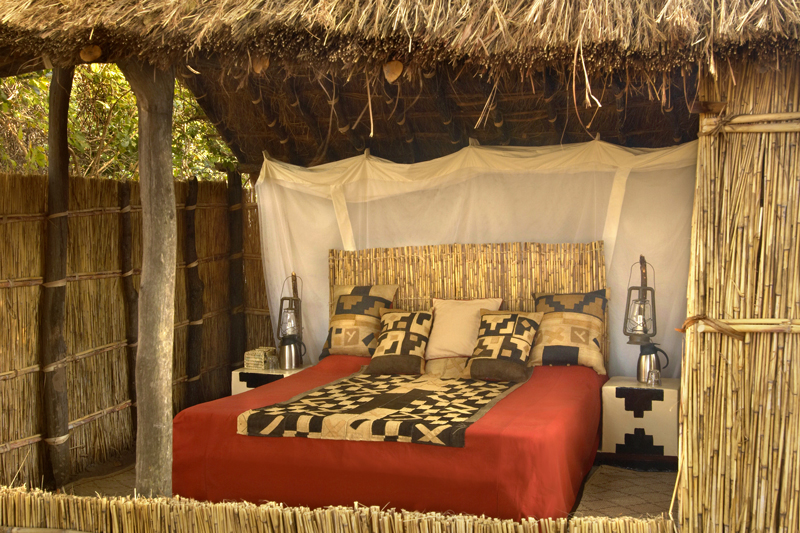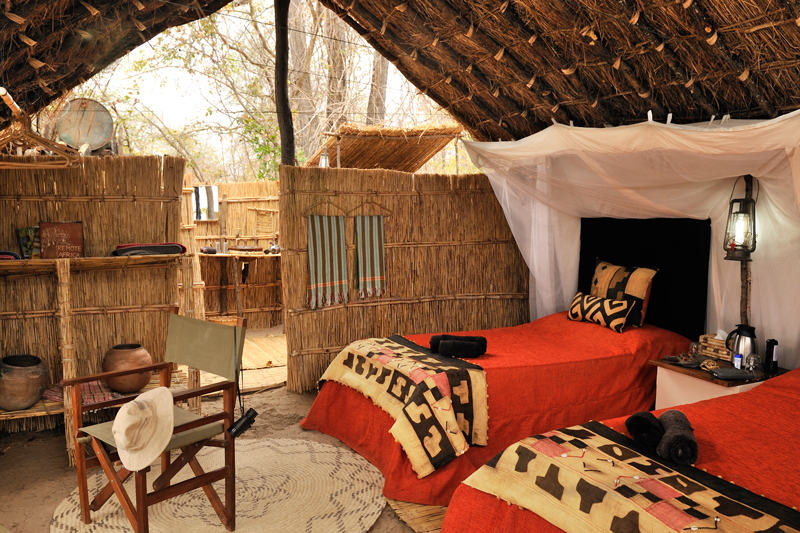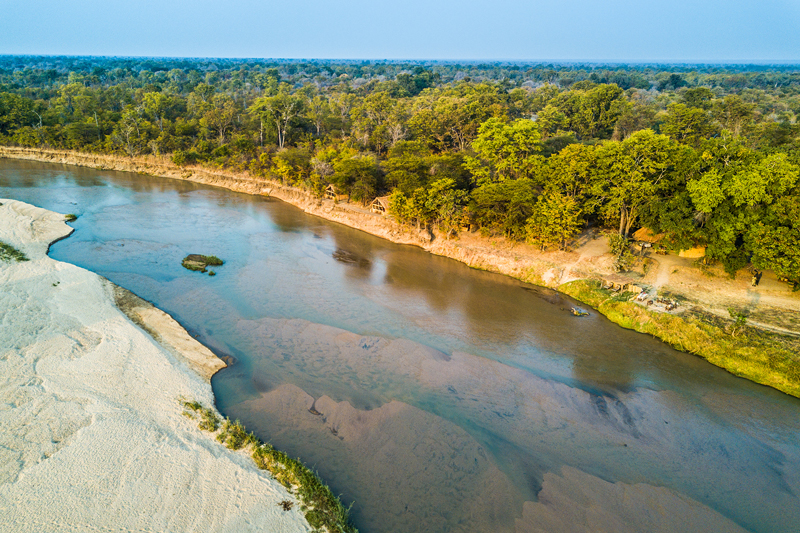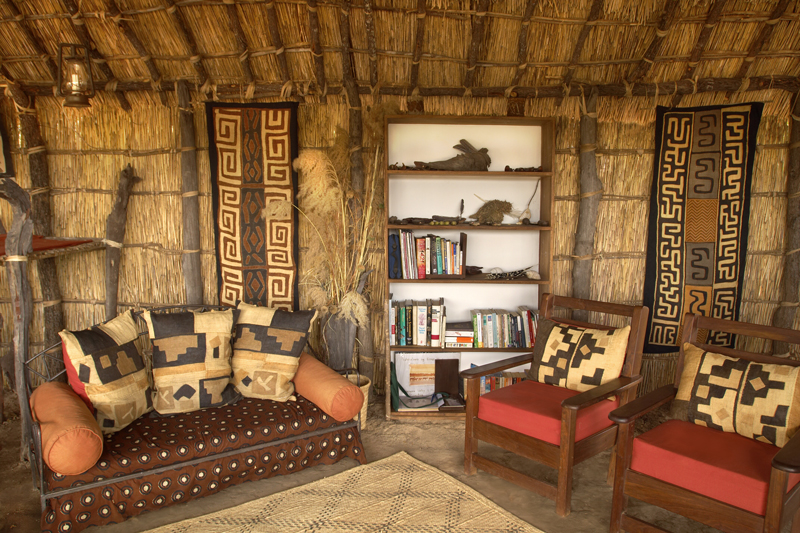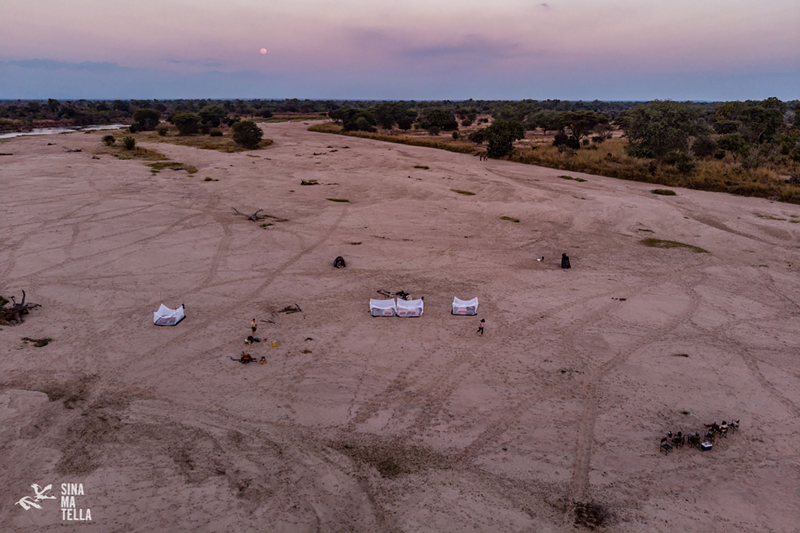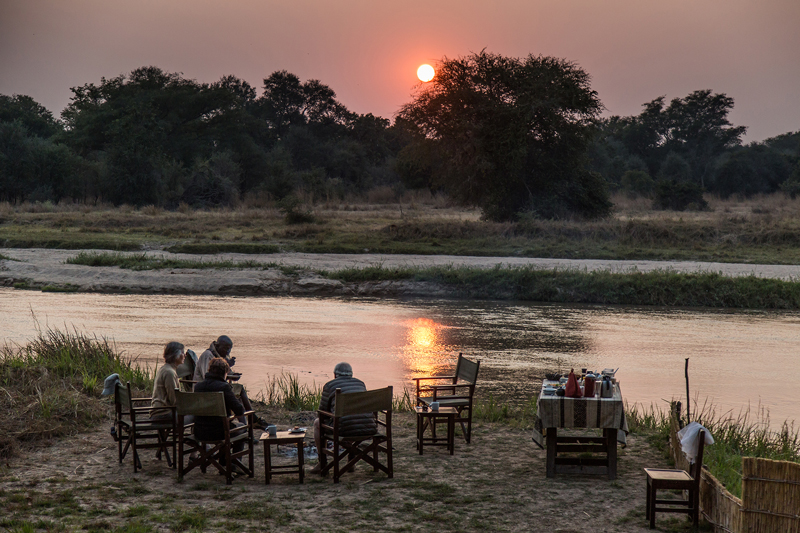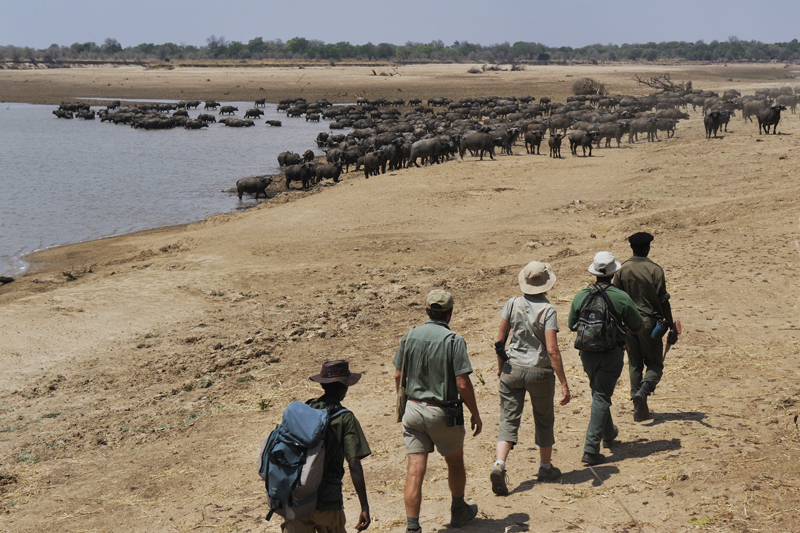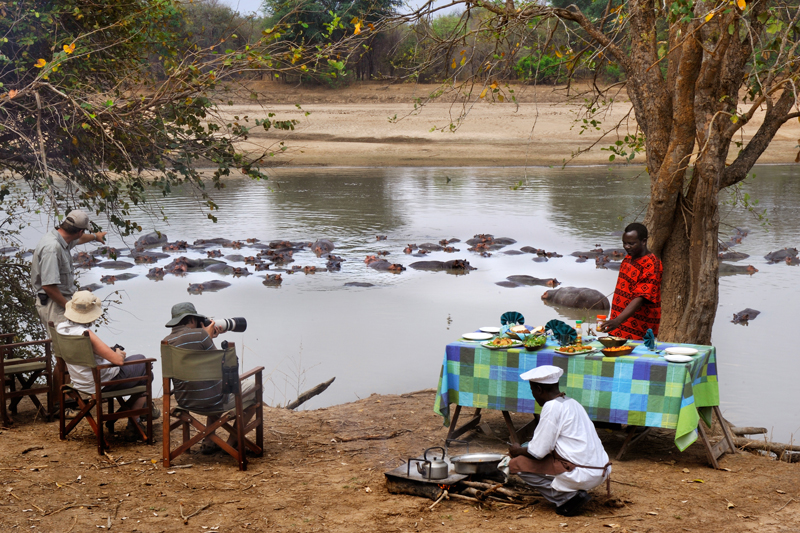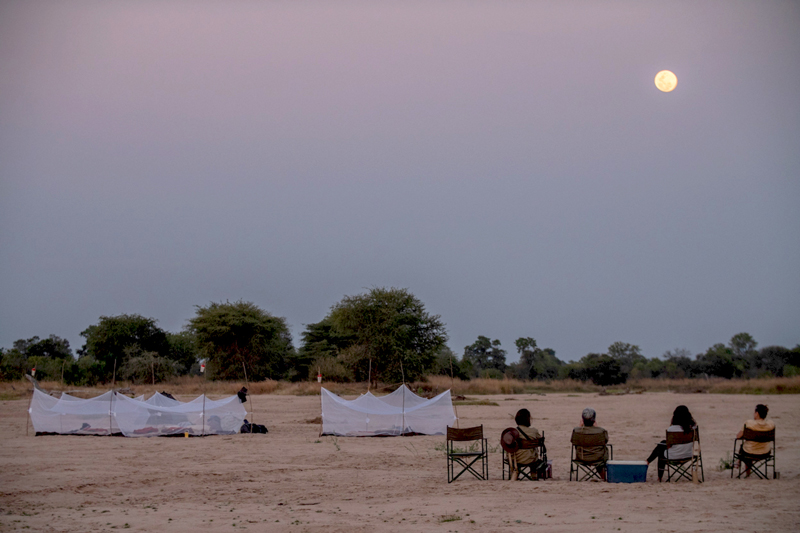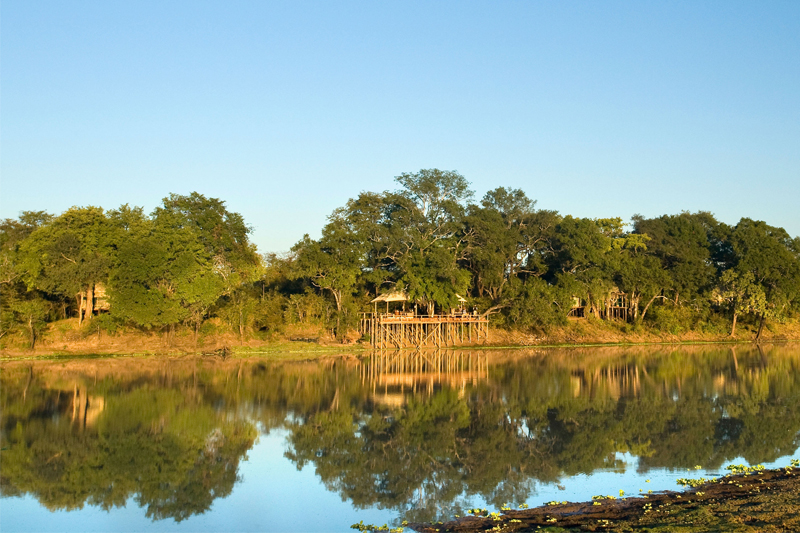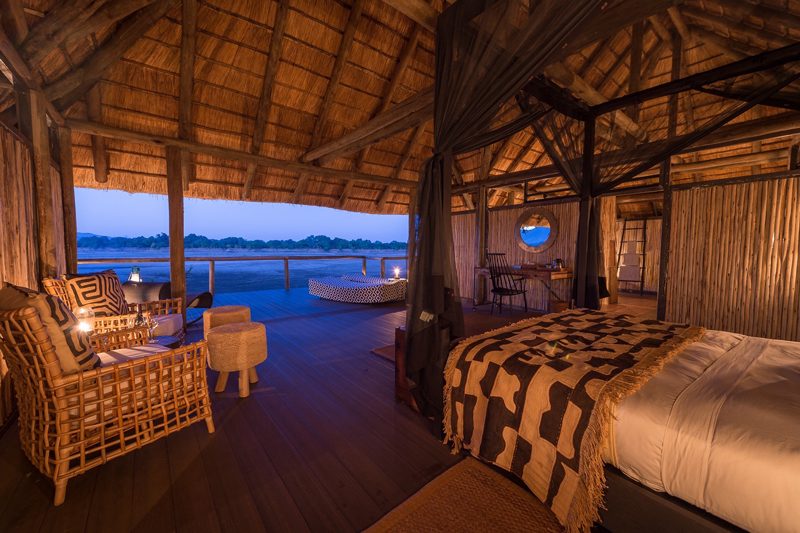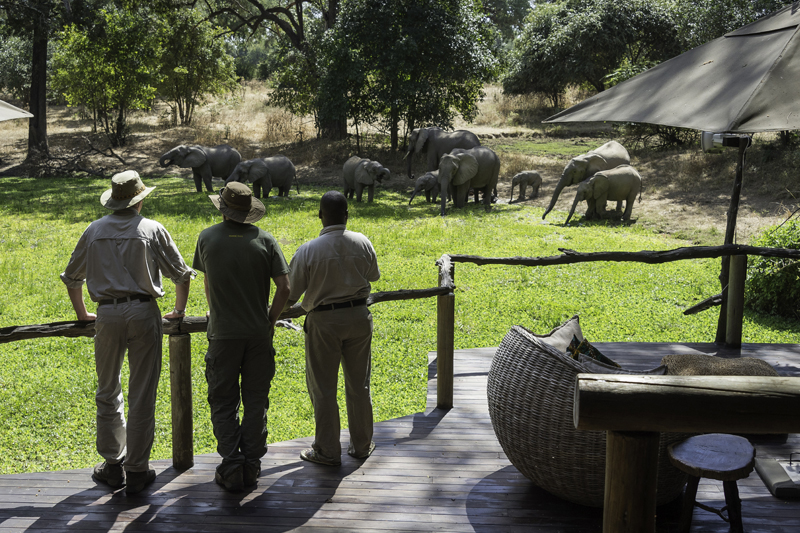Mwaleshi Camp
Mwaleshi Camp is in the wild North Luangwa National park located on a bend of the Mwaleshi River upstream of the confluence with the Luangwa River.
Mwaleshi Camp is a wonderfully exclusive bush camp that has been operating for many years in the wilderness of the North Luangwa. With a total focus on walking, this camp will appeal to travellers who wish to spend several days exploring on foot. Game viewing concentrations are not as high as within the South Luangwa, but walks can still be very exciting with healthy lion, elephant, wild dog and buffalo populations, and with very few other camps in the park, you are almost guaranteed to have the bush to yourself. Owned and run by Remote Africa Safaris, standards of food and service are very food, and guiding is always excellent.
Rooms
Mwaleshi accommodates up to six guests in four reed and bamboo thatched chalets overlooking the Mwaleshi River. The chalets have clay/sand floors, roll down bamboo blinds and mosquito nets which cover the bed. Open air en suite facilities are located at the back of each chalet and include a safari bucket shower and a single wash basin in addition to a thatched covered flush toilet. Hot water is available on request. To the front of the chalet are two safari chairs on the edge of the river bank.
Central Areas
The central areas include the bar, small sitting area and the communal dining table whilst built into the bank of the river is a gazebo furnished with loungers.
Facilities
Wi-Fi – Yes
Power for charging – Yes
Swimming pool – No
Habitat & Wildlife
The North Luangwa National Park covers an area of over 4,500 sq. kilometres, and contains just a handful of small bush camps. Around half the size of its ‘Southern’ counterpart, it is roughly bisected by the Mwaleshi River, a clear perennial tributary of the Luangwa River which has its source on the western escarpment.
Notable differences to South Park are the remoteness (you are very unlikely to encounter other visitors in North Luangwa), large populations of lion and hyaena, enormous herds of buffalo, and Cookson’s wildebeest in abundance. The Mwaleshi River runs clear for most of the season and provides a life-line away from the Luangwa.
While the park was gazetted, along with South Luangwa, in 1972, it remained a wilderness area for many years with entry only permitted to game department rangers and researchers. With no tourism traffic or investment, the park was affected terribly by poaching. A partnership between the Frankfurt Zoological Society and the Zambian Department of National Parks saw the establishment of the North Luangwa Conservation Programme. This programme focuses on conservation of the region’s ecosystem, wildlife and people with effective anti-poaching patrols and community engagement. Black rhino have also been reintroduced to the park, within a secure sanctuary, and a viable population has been established.
Today, the park is an area renowned for its superb wildlife in a pristine environment. Only a few companies have been given the rights to access the area for tourism, offering a very privileged and exclusive wildlife experience not found in many other places in safari Africa.
Activities
Walking safaris are offered at Mwaleshi but a vehicle is available to offer short drives to access walking areas further afield. The daily routine is flexible but would normally include rising well before sunrise, and after a light breakfast, walk out of camp until the heat of the day (varies according to time of year). Back in camp for an early lunch followed by a siesta. The evening activity departs after tea and will be a shortened walk or combination walk/drive, returning to camp shortly after sunset.
During your stay, you may also have the opportunity to visit the Chipopoma Falls on the Western escarpment of the Park. This is a days outing away from Mwaleshi, accessed by the single track which leads to the escarpment and a walk to the falls. A chance to wallow (or swim), take lunch and a siesta before returning to camp, arriving as the sun begins to sink into the horizon.
If you’re very adventurous, try the ‘camp sleep-out’. This is an overnight excursion into a remoter part of the valley using basic mosquito nets and bedrolls surrounded by kerosene lanterns with a shared bush toilet a short distance away. Simple fare cooked over a campfire. The scout and guide will take turns doing sentry duty during the night – an extreme wilderness experience perfect for a family or group of friends travelling together. Please note that this sleep-out option is only available if all camp guests partake.
Seasons
Mwaleshi is open from mid-June through to October, and game viewing becomes more abundant as the dry season progresses.
Mwaleshi is not suitable for young children and only accepts children 12 years and above. We would actually suggest it is only suitable for children 15 years and above who are keen walkers and wildlife enthusiasts, and we would suggest families should take Mwaleshi on an exclusive basis to give them flexibility on activities and a totally private camp experience.
Remote Africa Safaris, owners of Takwela Camp, operate the Tafika Fund which sees ad donation from each guest’s stay go to the programmes operated by the Fund. Through donations from guests, tour operators and Remote Africa Safaris themselves, the Fund supports the government run Mkasanga School. They assist in the education of children from the local communities through scholarships and sponsorships to pupils, stationery supplies and payment of salaries for five school staff members at Mkasanga School.
The skills programme within the Fund is growing to cover other areas such as medicine, agriculture and specialist trades including mechanics, carpentry and tailoring. They have provided maintenance to assist in the upkeep of the school and solar lighting for homework rooms which would otherwise not be able to operate in darkness. The Fund has also built an outpatient clinic in the village with hopes of expansion to include an inpatient and maternity wing.
Remote Africa Safaris started and funds the Football for Wildlife initiative which uses the love of football to educate the Luangwa valley communities in wildlife conservation and awareness. The Football for Wildlife league brings together teams from North and South Luangwa, each village forming a team and so assisting in communication within the communities. The league now also includes a ladies’ league and in doing so drives the empowerment of women.
Remote Africa Safaris also three local conservation NGOs: Conservation South Luangwa, the Zambian Carnivore Programme and North Luangwa Conservation Programme. These organisations are involved in anti-poaching measures, human-wildlife mitigation, the conservation of large carnivores and their eco-systems and community empowerment and engagement.
Remote Africa Safaris are members of Pack for a Purpose where guests may use the empty space in their suitcases for donations of much needed supplies for locally supported projects.



